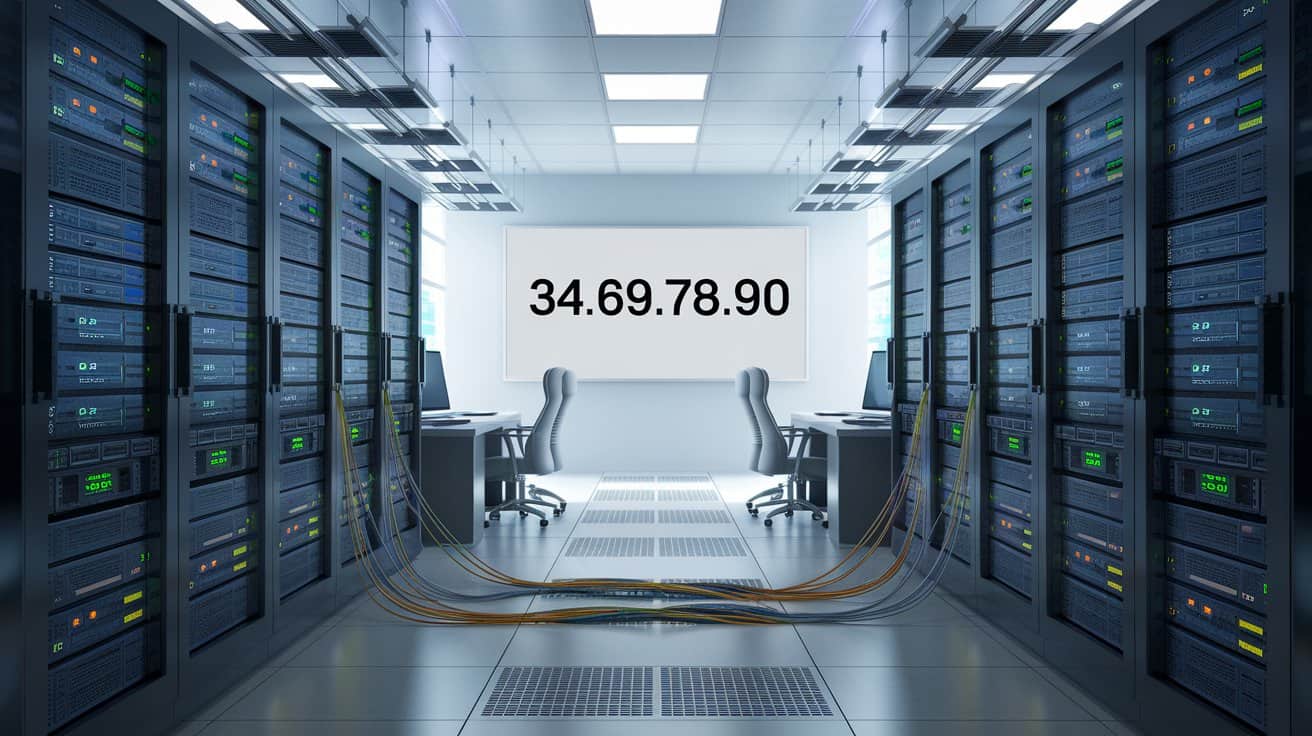While working on my website, I found that the IP address http://34.69.78.90 played a key role in connecting to a server that boosted our site’s speed. By looking into where this IP was located and what it did, I was able to make our content load faster and improve the user experience.
The Ip Address Http://34.69.78.90 Points To A Specific Server On The Internet. It Could Be Used For Various Online Services, Such As Hosting A Website Or Providing Cloud Storage. To Find Out More About Its Exact Role, You Would Need To Perform A Lookup To Determine The Associated Organization And Services.
We’ll examine the IP address ‘http://34.69.78.90’ and uncover its role in the digital world. Learn about what this IP address signifies, its potential applications, and its impact on online services.
What Is An Ip Address?
An IP address, short for Internet Protocol address, is a numerical label assigned to each device connected to a computer network. It serves two main functions: identifying the host or network interface and providing the location of the host in the network.
Essentially, it’s like a postal address for your computer or any internet-connected device.
What Are The Types Of Ip Addresses?
IP addresses come in two versions: IPv4 and IPv6.
IPv4
- Format: Comprises four sets of numbers separated by periods (e.g., 192.168.0.1).
- Range: From 0.0.0.0 to 255.255.255.255.
- Limitations: With only about 4.3 billion possible addresses, IPv4 is running out due to the increasing number of devices.
IPv6
- Format: Contains eight groups of hexadecimal digits separated by colons (e.g., 2001:0db8:85a3:0000:0000:8a2e:0370:7334).
- Range: Provides a vastly larger address space, accommodating about 340 undecillion addresses.
- Advantage: Solves the address exhaustion problem of IPv4.
Decoding Http://34.69.78.90:
The IP address http://34.69.78.90 follows the IPv4 format. To understand its significance, we need to investigate the following aspects:
IP Address Structure
An IPv4 address is split into four octets. Each octet is a decimal number ranging from 0 to 255. The IP address “34.69.78.90” can be broken down into these four parts:
- 34: The first octet.
- 69: The second octet.
- 78: The third octet.
- 90: The fourth octet.
IP Geolocation
Using geolocation tools, we can determine the approximate physical location of the server or device associated with this IP address. Geolocation helps in understanding where the IP is registered or used, providing insights into its potential origin.
Reverse DNS Lookup
A reverse DNS lookup allows us to find the domain name associated with an IP address. This is useful for identifying the host and understanding the purpose of the IP address.
How Can I Verify The Legitimacy Of An Ip Address Like “Http://34.69.78.90”?
To verify the legitimacy of an IP address, you can perform several checks:
- Whois Lookup: This will provide details about the organization or entity that owns the IP address.
- Reverse DNS Lookup: This can reveal the domain name associated with the IP address, helping to identify its purpose.
- Geolocation Check: Determine the physical location to ensure it aligns with the expected region or organization.
- Network Security Tools: Use tools to scan for open ports and services to understand its usage and potential risks.
How Can Businesses Use The Information From Http://34.69.78.90 For Strategic Decisions?
- Market Analysis: Understanding the geographical location and associated services can help tailor marketing strategies to specific regions.
- Competitor Analysis: Identifying the organization behind the IP address can provide insights into competitors’ online activities and infrastructure.
- Security Planning: Knowing the services and potential risks associated with an IP address helps in strengthening cybersecurity measures and preparing for potential threats.
Practical Uses Of Ip Addresses:
Understanding IP addresses helps in various scenarios, including:
- Network Configuration: Network administrators use IP addresses to configure and manage networks efficiently.
- Troubleshooting: IP addresses are crucial in diagnosing network issues and ensuring connectivity between devices.
- Security: Monitoring IP addresses helps in detecting and preventing unauthorized access or cyber threats.
- Content Delivery: IP addresses are used by content delivery networks (CDNs) to deliver content efficiently to users based on their location.
Case Study – Analyzing “Http://34.69.78.90”!
Let’s take a closer look at the specific IP address “http://34.69.78.90”. Here’s a step-by-step analysis:
1. Geographical Location
By performing a geolocation lookup, we find that this IP address is associated with a specific region. This can help us understand the geographical distribution of the network traffic or service provider.
2. Associated Organization
A whois lookup can reveal the organization that owns this IP address. This can provide insights into the type of services offered by the organization.
3. Potential Use Cases
Determining the use case of this IP address involves checking if it belongs to a web server, email server, or another type of service.
Conclusion:
IP addresses are fundamental to the internet, serving as the unique identifiers for devices and servers. Understanding their structure, uses, and specific details, such as those related to “http://34.69.78.90,” helps in managing and troubleshooting networks, enhancing security, and optimizing content delivery.
FAQs:
What Is An Ip Address?
An IP address is a unique identifier for a device on a network, enabling communication between devices over the internet.
How Does An Ip Address Work?
It functions by identifying the source and destination of data packets in a network, ensuring that data reaches the correct location.
What Is The Difference Between Ipv4 And Ipv6?
IPv4 uses a 32-bit address scheme, allowing about 4.3 billion addresses, while IPv6 uses a 128-bit scheme, accommodating vastly more addresses.
How Can I Find The Location Of An Ip Address?
You can use geolocation tools and services to determine the approximate physical location of an IP address.
What Is A Reverse Dns Lookup?
It is a process of resolving an IP address to its associated domain name, which helps in identifying the host.
How Can Ip Addresses Be Used For Security Purposes?
They help in monitoring network traffic, detecting unauthorized access, and implementing security policies.
Why Is Ipv4 Address Exhaustion A Problem?
The limited number of IPv4 addresses is insufficient for the growing number of internet-connected devices, leading to the adoption of IPv6.
How Do Content Delivery Networks Use Ip Addresses?
CDNs use IP addresses to deliver content based on users’ geographical locations, optimizing speed and performance.
Can Ip Addresses Be Changed Or Masked?
Yes, IP addresses can be changed by internet service providers or masked using technologies like VPNs and proxies.
What Is The Significance Of An Ip Address In Network Troubleshooting?
IP addresses are crucial in diagnosing network issues, identifying faulty connections, and ensuring proper network configuration.



